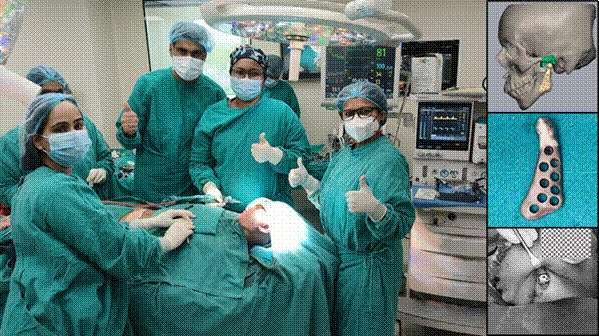In a major advancement for India’s medical technology sector, a customized Temporo-Mandibular Joint (TMJ) implant procedure has been successfully performed on four patients at the Maulana Azad Institute of Dental Sciences (MAIDS), New Delhi.
The implant, developed under the Indian Council of Medical Research (ICMR)-DHR MedTech initiative at IIT Delhi’s mPRAGATI facility, marks a significant step in India’s effort to promote self-reliance in healthcare through indigenous innovation. The procedure was conducted through a collaboration between MAIDS, ICMR, and the Medical Device and Diagnostics Mission Secretariat (MDMS), with the objective of reducing dependence on imported medical devices and improving access to advanced, affordable care.
Union Health Minister J.P. Nadda hailed the achievement as a milestone for India’s growing MedTech ecosystem. He said the successful implantation reflected the strength of homegrown innovation and underscored how research, policy support, and clinical excellence are combining to deliver affordable healthcare solutions.
ICMR Director General Dr. Rajiv Bahl emphasized the importance of cross-disciplinary collaboration, noting that the development demonstrated how clinical expertise, engineering, and research could come together to address real-world health challenges. He said the initiative represents progress toward India’s leadership in affordable and effective healthcare technologies.
The indigenous TMJ implant has been designed to address disorders of the joint connecting the jawbone to the skull. The implant is tailored to each patient to improve jaw movement, stability, and overall function. A dedicated muscle attachment feature enhances both functional recovery and facial aesthetics, while helping reduce recovery time.
Developed under the Make in India initiative, the implant is significantly more affordable than its imported counterparts, costing nearly one-fifth of Indian industry-made versions and only a fraction of the price of foreign-made devices. Localized manufacturing has also cut the production timeline to around two weeks, allowing for quicker treatment and improved patient outcomes.
The successful procedures at MAIDS are being seen as a model for future innovations in personalized medical implants.














